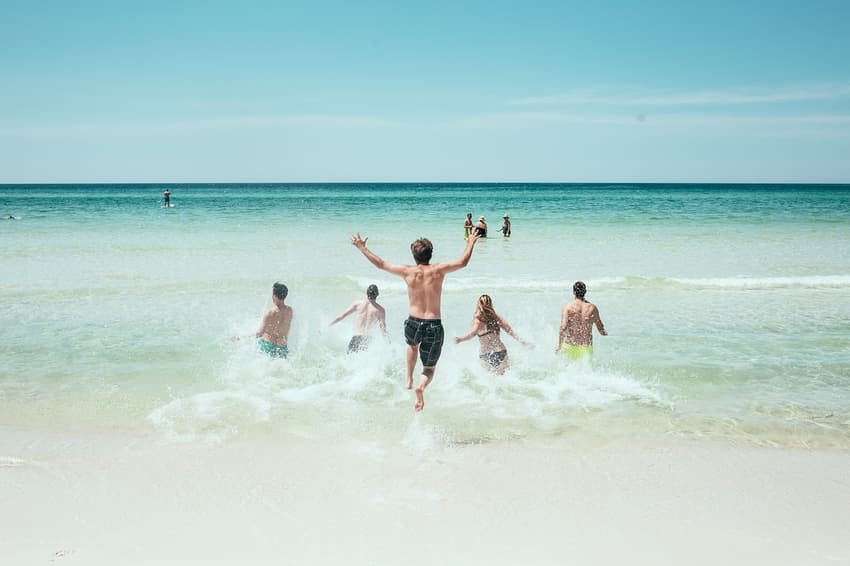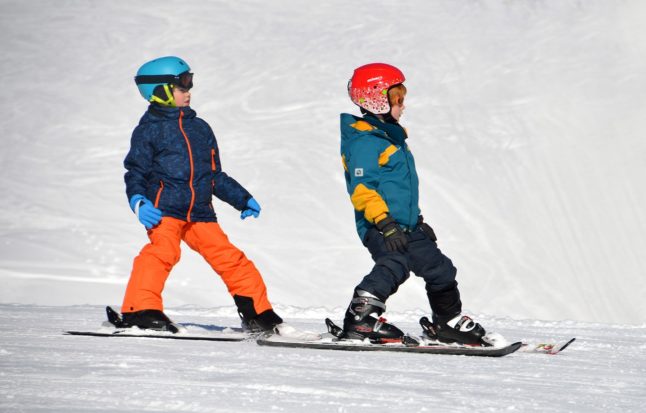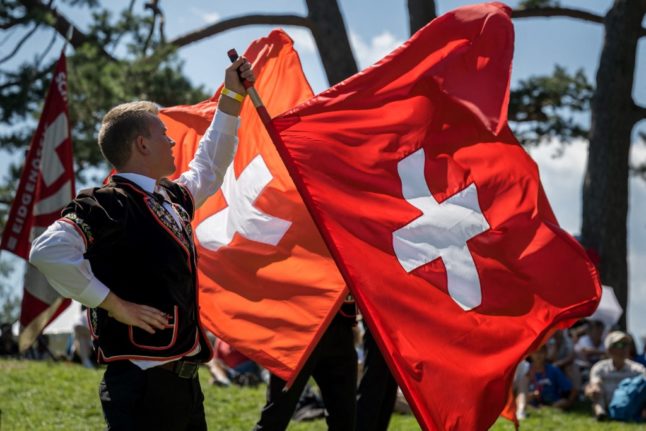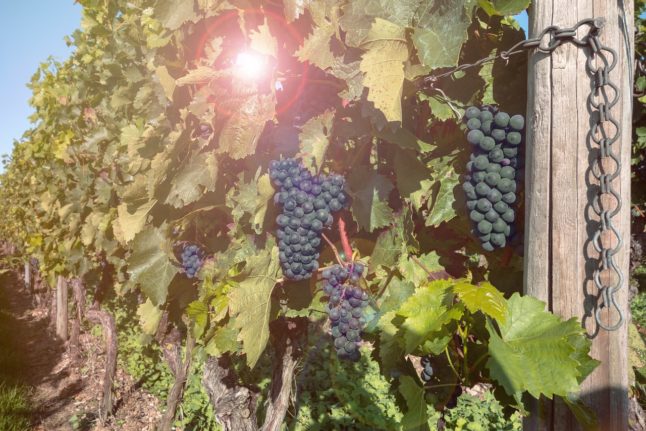Everything that changes in Switzerland in 2023

The New Year is almost upon us, which means a slew of changes. We have compiled the main ones that are set to happen in the next 12 months.
January
Lots of changes are happening in the first month of the year, which we will explain in more detail in a separate article.
Here is an overview:
Starting this month, expect to pay higher electricity prices, the exact amount of the increase depending on your canton of residence:
Swiss government confirms ‘sharp increase’ in electricity prices
But the price shock doesn’t end here: Also starting in January, your monthly health premiums will go up by 6.6 percent on average — the sharpest hike in the past 20 years.
This is the national average; depending on where you live, the increases will be even more substantial, as premiums are set individually by each canton and are based on their health infrastructure, levels of government funding, as well as younger / healthier population versus older, chronically ill residents.
READ MORE: Which Swiss cantons will see the biggest increase in health insurance premiums?
But that’s not all.
Whether you are a tenant or homeowner, expect your rents / mortgage rates to go up as well, due to higher interest rates that were introduced in Switzerland to fight inflation.
This is a summary of what you will have to pay more for in 2023:
Energy, rents, health insurance: How Switzerland will be hit by price rises in 2023
There are some other developments awaiting you as well: some Swiss banks will offer higher interest rates on your savings.
READ MORE: Which Swiss banks offer the highest interest rates on savings?
Depending on where in Switzerland you live, you will also have some days off on public holidays:
- January 1st, New Year’s Day, is a national holiday (although since it's a Sunday most people won't get the day off)
- January 2nd, Saint Berchtold’s Day is celebrated in AG, BE, FR, GL, JU, LU, OW, SH, TG, and VD
- January 6th, GR, LU, SZ, TI, and UR celebrate Epiphany
For the purposes of this article the abbreviations for the 26 Swiss cantons are as follows:
Aargau (AG), Appenzell Innerrhoden (AI), Appenzel Ausserhoden (AR), Bern (BE), Basel-Country (BL), Basel-City (BS), Fribourg (FR), Geneva (GE), Glarus (GL), Graubünden (GR), Jura (JU), Lucerne (LU), Neuchâtel (NE), Nidwalden, (NW), Obwalden (OW) Schwyz (SZ), Schaffhausen (SH), Solothurn (SO), St. Gallen (SG), Ticino (TI), Thurgau (TG), Uri (UR), Valais (VS), Vaud (VD), Zug (ZG), Zurich (ZH)
February
Like every year, February is traditional “family ski” month, when children get a week off from school (except in canton Lucerne where they will be off for two weeks), so families head to mountain resorts.
Dates of this winter holidays vary among cantons; you can see the ones for your region here.
It is too early to know what the snow situation will be like, but this will be the first February since 2019 without any Covid restrictions — at least based on the current situation.
A milestone of sorts will come on February 20th, though you will likely not even notice it.
By that day, daylight speeds up to three minutes per day, according to the almanac, a very useful annual calendar that contains astronomical data and tide tables, among other information.
“On the 20th, day length is 10 hours, 53 minutes, and on the 21st, it's 10 hours, 56 minutes," it says.
This means that dark early mornings and dark early evenings are on the way out.
February 22nd will mark Ash Wednesday and the beginning of Lent, which will last for 46 days, until Easter Sunday (see below).

Kids will have ski holidays in February. Photo: Pixabay
March
This is an important month for Switzerland’s taxpayers, as March 31st is the deadline for tax returns to be filed.
However, it is common for taxpayers to request (and be granted) an extension, which varies from one canton to another:
EXPLAINED: How to get an extension on your tax deadline in Switzerland
But there are other important events as well.
March 21st marks the beginning of Spring, the so-called Vernal Equinox.
And on March 26th, daylight savings time will begin, when we will set our clocks forward one hour and lose an hour of sleep.
Some cantons also celebrate public holidays in March:
- 1st: Republic Day, NE
- 19th: St Joseph’s Day, GR, LU, NW, SZ, TI, UR, VS
April
April is the traditional Easter month (though at some times in the past Easter has fallen at the end of March).
This year, Easter Sunday is on the 7th, with Good Friday being the national public holiday everywhere except except TI and VS. And Easter Monday also a day off with the exception of NE, SO, VS, and ZG.
Easter vacations will vary from canton to canton, usually lasting two weeks.
READ MORE: Easter trees and egg smashing: How to celebrate Easter the Swiss way

Photo: Boris Manev on Pexels
May
New, EU-wide travel system, the Entry and Exit System (EES), is scheduled to come into effect this month.
The new system has four aims – to improve and modernise border systems; to reinforce security and aid the fight against crime and terrorism; to help EU member states deal with increasing traveller numbers without having to increase the numbers of border staff; and to systematically identify over stayers within the Schengen area [ie people who have stayed longer than their visa or 90-day limit allowance].
While Switzerland is not a member of the EU, but it is part of the Schengen Area and will be part of the EES system, so the same travel rules apply here.
This article has detailed information about the EES:
EXPLAINED: What the EU’s new EES system means for travel to Switzerland
In terms of public holidays, this is what May has in store:
- 1st: Labour Day, BL, BS, JU, LU, NE, SH, SO, TG, TI, ZH
- 26th: Ascension Day, national
- 29th: Whit Monday, national except NE, SO, VS, ZG
June
On June 18th, the first round of national referendums will be held, with issues to be put to vote yet to be determined.
The 21st marks the first day of Summer, and the following day, the 22nd, is the solstice — the day when the sun is at its highest point, with the most hours of daylight and least hours of darkness of any day in the year.
There are also the following public holidays in June:
- 8th: Corpus Christi, national except AR, BL, BS, BE, GE, GL, NE, SH, SG, TG, VD, ZH
- 23rd: Independence of Jura, JU
- 29th: St Peter and St Paul, GR, TI
July
With schools on summer break, July is a traditional vacation month in Switzerland and much of the country comes to a standstill (the same way as Italy and France do in August).
The Federal Council and the parliament are also on a break, so political life slows down as well.
There are, however, some good music events like the world-famous Montreux Jazz Festival from June 30th to July 15th, and Paleo Festival in Nyon near Geneva from July 18th to 23rd.
August
This month starts with Switzerland’s National Day on August 1st (a Tuesday) which, needless to say is a public holiday in all cantons.
READ MORE: Why Switzerland celebrates its national day on August 1st
Another public holiday this month, though in only half of Switzerland’s 26 cantons is on 15th: Assumption Day, celebrated in AG, AI, FR, JU, LU, NW, OW, SO, SZ, TI, UR, VS, ZG.
August also marks the back-to-school month, with dates varying by cantons.

August 1st celebration. Photo by Fabrice COFFRINI / AFP)
September
This month, life is getting back to normal (normal for Switzerland, that is).
This is also when one of the most “Swiss-like” events (other than the August 1st National Day) takes place: the cows’ descent from the Alps.
This descent has been taking place annually all over Switzerland for centuries. Across the country, some 12,000 herdsmen and over 100,000 cows spend more than three months in the mountains producing cheese, before returning to their winter farms in autumn.
You can watch cows — literally — come home in various villages across the country, which is about as folkloric an event as you are likely to see in Switzerland.
You can see dates in your area on the tourism website in your region.
As for public holidays, they are:
- 15th: Jeûne genevois, GE
- 17th: Jeûne federal (Federal Feast), except GE
- 18th: Day after the Federal Fast, VD
- 22nd: St Mauritius, AI
- 25th: Brother Klaus Festival, OW
October
Schools in Switzerland will be on a fall break for two weeks.
The 22nd is an important day in Swiss political life, as Switzerland’s MPs for both chambers of the parliament (Council of States and National Council) will be elected by the voters. The election takes place every four years.
On October 29th Daylight Savings Time will end, with clocks turned backward 1 hour, which means there will be more light in the morning.
Throughout the month, various wine-growing regions of the country will hold grape harvest festivals; you can find one closest to you from your local tourism office.

Grapes are being picked throughout Switzerland in October. Image by Michael Schwarzenberger from Pixabay
November
November 1st: All Saints’ Day, is a national holiday, except in AR, BL, BS, BE, GE, GR, NE, SH, TG, VD, and ZH.
The second round of national referendums will take place on the 26th.
This is also is an important month for people who have a compulsory health insurance KVG / LaMal (which is practically everyone in Switzerland), as November 30th is the deadline to cancel your plan and switch to another one for the following year — if that’s what you would like to do.
December
On the 8th: Immaculate Conception is a public holiday in AG, AI, FR, GR, LU, NW, OW, SZ, TI, UR, VS, and ZG.
On the 10th, the new SBB timetable for 2024 will be published, as it is every year on the first Sunday of December.
Members of the parliament will elect (or re-elect, as the case may be) the Federal Council on December 13th.
Winter will officially start on December 22nd.
The 24th, Christmas Eve, is a public holiday in GL, and Christmas Day, the 25th, a national one.
December 31st, New Year’s Eve, is a holiday in GL, and 31st, Restoration Day, in GE.
Comments
See Also
January
Lots of changes are happening in the first month of the year, which we will explain in more detail in a separate article.
Here is an overview:
Starting this month, expect to pay higher electricity prices, the exact amount of the increase depending on your canton of residence:
Swiss government confirms ‘sharp increase’ in electricity prices
But the price shock doesn’t end here: Also starting in January, your monthly health premiums will go up by 6.6 percent on average — the sharpest hike in the past 20 years.
This is the national average; depending on where you live, the increases will be even more substantial, as premiums are set individually by each canton and are based on their health infrastructure, levels of government funding, as well as younger / healthier population versus older, chronically ill residents.
READ MORE: Which Swiss cantons will see the biggest increase in health insurance premiums?
But that’s not all.
Whether you are a tenant or homeowner, expect your rents / mortgage rates to go up as well, due to higher interest rates that were introduced in Switzerland to fight inflation.
This is a summary of what you will have to pay more for in 2023:
Energy, rents, health insurance: How Switzerland will be hit by price rises in 2023
There are some other developments awaiting you as well: some Swiss banks will offer higher interest rates on your savings.
READ MORE: Which Swiss banks offer the highest interest rates on savings?
Depending on where in Switzerland you live, you will also have some days off on public holidays:
- January 1st, New Year’s Day, is a national holiday (although since it's a Sunday most people won't get the day off)
- January 2nd, Saint Berchtold’s Day is celebrated in AG, BE, FR, GL, JU, LU, OW, SH, TG, and VD
- January 6th, GR, LU, SZ, TI, and UR celebrate Epiphany
For the purposes of this article the abbreviations for the 26 Swiss cantons are as follows:
Aargau (AG), Appenzell Innerrhoden (AI), Appenzel Ausserhoden (AR), Bern (BE), Basel-Country (BL), Basel-City (BS), Fribourg (FR), Geneva (GE), Glarus (GL), Graubünden (GR), Jura (JU), Lucerne (LU), Neuchâtel (NE), Nidwalden, (NW), Obwalden (OW) Schwyz (SZ), Schaffhausen (SH), Solothurn (SO), St. Gallen (SG), Ticino (TI), Thurgau (TG), Uri (UR), Valais (VS), Vaud (VD), Zug (ZG), Zurich (ZH)
February
Like every year, February is traditional “family ski” month, when children get a week off from school (except in canton Lucerne where they will be off for two weeks), so families head to mountain resorts.
Dates of this winter holidays vary among cantons; you can see the ones for your region here.
It is too early to know what the snow situation will be like, but this will be the first February since 2019 without any Covid restrictions — at least based on the current situation.
A milestone of sorts will come on February 20th, though you will likely not even notice it.
By that day, daylight speeds up to three minutes per day, according to the almanac, a very useful annual calendar that contains astronomical data and tide tables, among other information.
“On the 20th, day length is 10 hours, 53 minutes, and on the 21st, it's 10 hours, 56 minutes," it says.
This means that dark early mornings and dark early evenings are on the way out.
February 22nd will mark Ash Wednesday and the beginning of Lent, which will last for 46 days, until Easter Sunday (see below).

Kids will have ski holidays in February. Photo: Pixabay
March
This is an important month for Switzerland’s taxpayers, as March 31st is the deadline for tax returns to be filed.
However, it is common for taxpayers to request (and be granted) an extension, which varies from one canton to another:
EXPLAINED: How to get an extension on your tax deadline in Switzerland
But there are other important events as well.
March 21st marks the beginning of Spring, the so-called Vernal Equinox.
And on March 26th, daylight savings time will begin, when we will set our clocks forward one hour and lose an hour of sleep.
Some cantons also celebrate public holidays in March:
- 1st: Republic Day, NE
- 19th: St Joseph’s Day, GR, LU, NW, SZ, TI, UR, VS
April
April is the traditional Easter month (though at some times in the past Easter has fallen at the end of March).
This year, Easter Sunday is on the 7th, with Good Friday being the national public holiday everywhere except except TI and VS. And Easter Monday also a day off with the exception of NE, SO, VS, and ZG.
Easter vacations will vary from canton to canton, usually lasting two weeks.
READ MORE: Easter trees and egg smashing: How to celebrate Easter the Swiss way

Photo: Boris Manev on Pexels
May
New, EU-wide travel system, the Entry and Exit System (EES), is scheduled to come into effect this month.
The new system has four aims – to improve and modernise border systems; to reinforce security and aid the fight against crime and terrorism; to help EU member states deal with increasing traveller numbers without having to increase the numbers of border staff; and to systematically identify over stayers within the Schengen area [ie people who have stayed longer than their visa or 90-day limit allowance].
While Switzerland is not a member of the EU, but it is part of the Schengen Area and will be part of the EES system, so the same travel rules apply here.
This article has detailed information about the EES:
EXPLAINED: What the EU’s new EES system means for travel to Switzerland
In terms of public holidays, this is what May has in store:
- 1st: Labour Day, BL, BS, JU, LU, NE, SH, SO, TG, TI, ZH
- 26th: Ascension Day, national
- 29th: Whit Monday, national except NE, SO, VS, ZG
June
On June 18th, the first round of national referendums will be held, with issues to be put to vote yet to be determined.
The 21st marks the first day of Summer, and the following day, the 22nd, is the solstice — the day when the sun is at its highest point, with the most hours of daylight and least hours of darkness of any day in the year.
There are also the following public holidays in June:
- 8th: Corpus Christi, national except AR, BL, BS, BE, GE, GL, NE, SH, SG, TG, VD, ZH
- 23rd: Independence of Jura, JU
- 29th: St Peter and St Paul, GR, TI
July
With schools on summer break, July is a traditional vacation month in Switzerland and much of the country comes to a standstill (the same way as Italy and France do in August).
The Federal Council and the parliament are also on a break, so political life slows down as well.
There are, however, some good music events like the world-famous Montreux Jazz Festival from June 30th to July 15th, and Paleo Festival in Nyon near Geneva from July 18th to 23rd.
August
This month starts with Switzerland’s National Day on August 1st (a Tuesday) which, needless to say is a public holiday in all cantons.
READ MORE: Why Switzerland celebrates its national day on August 1st
Another public holiday this month, though in only half of Switzerland’s 26 cantons is on 15th: Assumption Day, celebrated in AG, AI, FR, JU, LU, NW, OW, SO, SZ, TI, UR, VS, ZG.
August also marks the back-to-school month, with dates varying by cantons.

September
This month, life is getting back to normal (normal for Switzerland, that is).
This is also when one of the most “Swiss-like” events (other than the August 1st National Day) takes place: the cows’ descent from the Alps.
This descent has been taking place annually all over Switzerland for centuries. Across the country, some 12,000 herdsmen and over 100,000 cows spend more than three months in the mountains producing cheese, before returning to their winter farms in autumn.
You can watch cows — literally — come home in various villages across the country, which is about as folkloric an event as you are likely to see in Switzerland.
You can see dates in your area on the tourism website in your region.
As for public holidays, they are:
- 15th: Jeûne genevois, GE
- 17th: Jeûne federal (Federal Feast), except GE
- 18th: Day after the Federal Fast, VD
- 22nd: St Mauritius, AI
- 25th: Brother Klaus Festival, OW
October
Schools in Switzerland will be on a fall break for two weeks.
The 22nd is an important day in Swiss political life, as Switzerland’s MPs for both chambers of the parliament (Council of States and National Council) will be elected by the voters. The election takes place every four years.
On October 29th Daylight Savings Time will end, with clocks turned backward 1 hour, which means there will be more light in the morning.
Throughout the month, various wine-growing regions of the country will hold grape harvest festivals; you can find one closest to you from your local tourism office.

Grapes are being picked throughout Switzerland in October. Image by Michael Schwarzenberger from Pixabay
November
November 1st: All Saints’ Day, is a national holiday, except in AR, BL, BS, BE, GE, GR, NE, SH, TG, VD, and ZH.
The second round of national referendums will take place on the 26th.
This is also is an important month for people who have a compulsory health insurance KVG / LaMal (which is practically everyone in Switzerland), as November 30th is the deadline to cancel your plan and switch to another one for the following year — if that’s what you would like to do.
December
On the 8th: Immaculate Conception is a public holiday in AG, AI, FR, GR, LU, NW, OW, SZ, TI, UR, VS, and ZG.
On the 10th, the new SBB timetable for 2024 will be published, as it is every year on the first Sunday of December.
Members of the parliament will elect (or re-elect, as the case may be) the Federal Council on December 13th.
Winter will officially start on December 22nd.
The 24th, Christmas Eve, is a public holiday in GL, and Christmas Day, the 25th, a national one.
December 31st, New Year’s Eve, is a holiday in GL, and 31st, Restoration Day, in GE.
Join the conversation in our comments section below. Share your own views and experience and if you have a question or suggestion for our journalists then email us at [email protected].
Please keep comments civil, constructive and on topic – and make sure to read our terms of use before getting involved.
Please log in here to leave a comment.